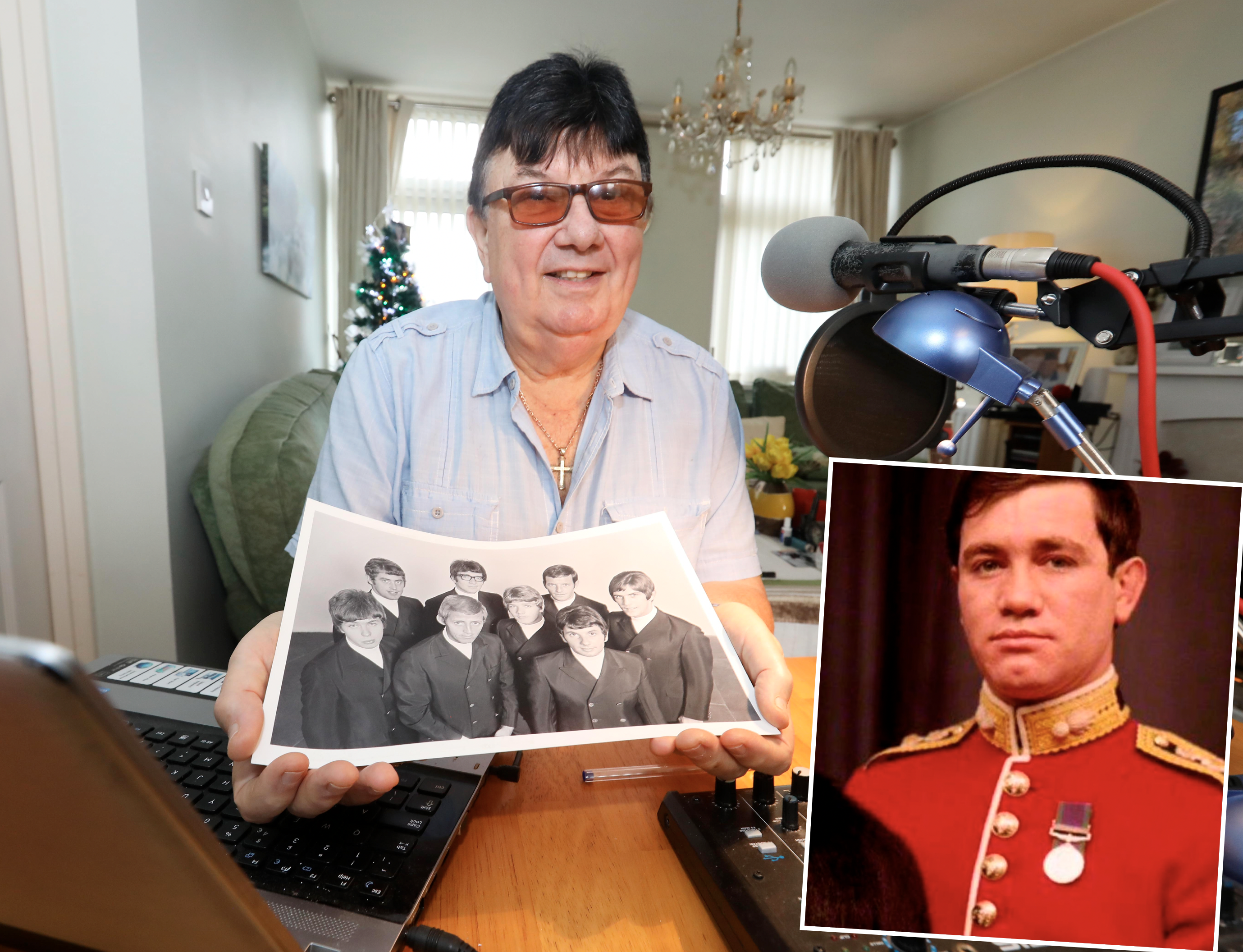CAPTAIN Robert Nairac, an undercover British Army officer, was central to organising the 1975 Miami Showband Massacre which killed three members of the group, according to Des Lee, one of surviving band members.
In his new memoir, My Saxophone Saved My Life – which is published on the 50th anniversary of the attack – Lee reveals that a British Ministry of Defence documentation that he has seen, as well as his own memories of the paramilitary attack, left him “in no doubt” as to Nairac’s central involvement in the atrocity. Lee believes Nairac was present on the night of the massacre in Buskhill, between Newry and Banbridge, which also left two of the UVF gang dead.
Nairac was abducted and killed by the IRA in 1977 and his remains have never been recovered.
Three members of the Miami Showband – one of Ireland’s most successful groups in the 1960s and '70s – were killed by Ulster Volunteer Force (UVF) gang on 31 July 1975. The band were returning to Dublin after performing in Banbridge, Co. Down. Saxophone player, Des Lee, and bass guitarist, Stephen Travers, were the only survivors.
The impact of that experience, survivor’s guilt, inconclusive inquiries and delayed justice have left Des Lee – who grew up in Andersonstown and was formerly Des McAlea – pondering “what-if” and the still unanswered “why?” to the present day. What sort of “monsters would be so vile as to plan the murder of musicians in a Catholic/Protestant band who represented unity on a divided island and only wanted to entertain?” he asks in the book.
Detailing his and Stephen Travers’ efforts search for justice from the British government over five decades, Lee writes that the horrors of that night continue “to haunt me and remind me repeatedly of how lucky I am to have made it this far.”
Des Lee in his Miami Showband days
Born in Belfast in 1946, Des McAlea formed his first band the Sinners in his teens. Belfast’s vibrant music scene attracted all the major acts of the day. When the Boom Boom Rooms opened in 1963, the Sinners played support to Lulu.
Following a move to Cork, a stint with two local bands and adoption of a stage name, Lee was asked to join Dickie Rock and the Miami in 1967, then one of the biggest bands in the country. Playing to packed audiences all over the island, “the public couldn’t get enough of us,” writes Lee in the book.
Tours of the US – including performances in Las Vegas and Carnegie Hall – followed in 1968 and 1970, before the bombshell announcement that Dickie Rock wanted a solo career, leaving the group in 1972. This opened the way, however, for a charismatic new frontman, Fran O’Toole, who proved hugely popular with fans.
At the same time, the North of Ireland was convulsing with the start and rapid escalation of the Troubles. Despite the political violence, the Miami continued to perform here. Their gig in a packed ballroom in Banbridge in late July 1975 “offered locals an opportunity to switch off from the madness that was going on around them and socialise in a regular environment,” says Lee.
He was not to know that “the madness” was to change forever his own life, as well as his family’s, and the lives of the other band members and their loved ones.
Fran O’Toole, Tony Geraghty and Brian McCoy from the Miami were murdered at a bogus British Army checkpoint on the A1 Belfast to Dublin road in the early hours of 31 July 1975. Two of the UVF gunmen were also killed when a timebomb they were attempting to hide on the band’s bus exploded.
The Miami Showband
Three members of the UVF gang – who were also former and serving soldiers with the British Army’s Ulster Defence Regiment (UDR) – were found guilty of the murders and received life sentences.
According to the PSNI’s Historical Enquiries Team 2011 report into the Miami Showband Massacre, ten people were involved in the attack, five of whom were never questioned by the RUC. It’s “written in black and white [in the report] that people within the wider British security forces and elements of the RUC colluded with and protected the UVF gang responsible for the deaths” of the band members, states Lee.
Although 1975’s massacre has cast a long shadow in Des Lee’s life, his memoir is about much more than the Troubles. He offers an insider account of the changing face of the entertainment industry, including a spell working with Louis Walsh and his time performing in South Africa; as well as personal tragedy with the loss of his wife Brenda in 2005 and eldest son Gary in 2019. Despite his own battles with alcoholism and illness, Lee writes that today he has found “a new sense of purpose in life”.
My Saxophone Saved My Life is written with Ken Murray and is published by Red Stripe Press, priced at £16.99. It is available in bookshops nationwide and online from www.redstripepress.com. The book will be launched in Waterstones, Fountain Street, Belfast on 7 August.
The Miami Showband 50th anniversary memorial concert will take place in Vicar Street, Dublin on 29 September.




